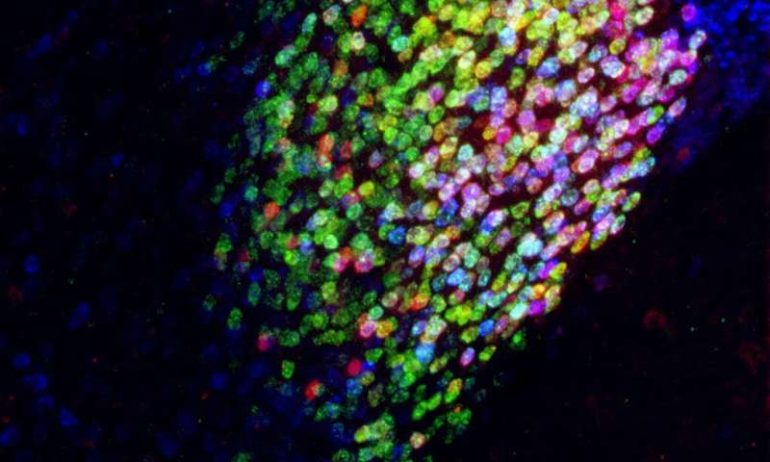A Duke University research team has found a small area of the brain in mice that can profoundly control the animals’ sense of pain.
Somewhat unexpectedly, this brain center turns pain off, not on. It’s also located in an area where few people would have thought to look for an anti-pain center, the amygdala, which is often considered the home of negative emotions and responses, like the fight or flight response and general anxiety.
“People do believe there is a central place to relieve pain, that’s why placebos work,” said senior author Fan Wang, the Morris N. Broad Distinguished Professor of neurobiology in the School of Medicine. “The question is where in the brain is the center that can turn off pain.”
“Most of the previous studies have focused on which regions are turned ON by pain,” Wang said. “But there are so many regions processing pain, you’d have to turn them all off to stop pain. Whereas this one center can turn off the pain by itself.”
The work is a follow-up to earlier research in Wang’s lab looking at neurons that are activated, rather than suppressed, by general anesthetics. In a 2019 study, they found that general anesthesia promotes slow-wave sleep by activating the supraoptic nucleus of the brain. But sleep and pain are separate, an important clue that led to the new finding, which appears online May 18 in Nature Neuroscience.
The researchers found that general anesthesia also activates a specific subset of inhibitory neurons in the central amygdala, which they have called the CeAga neurons (CeA…



